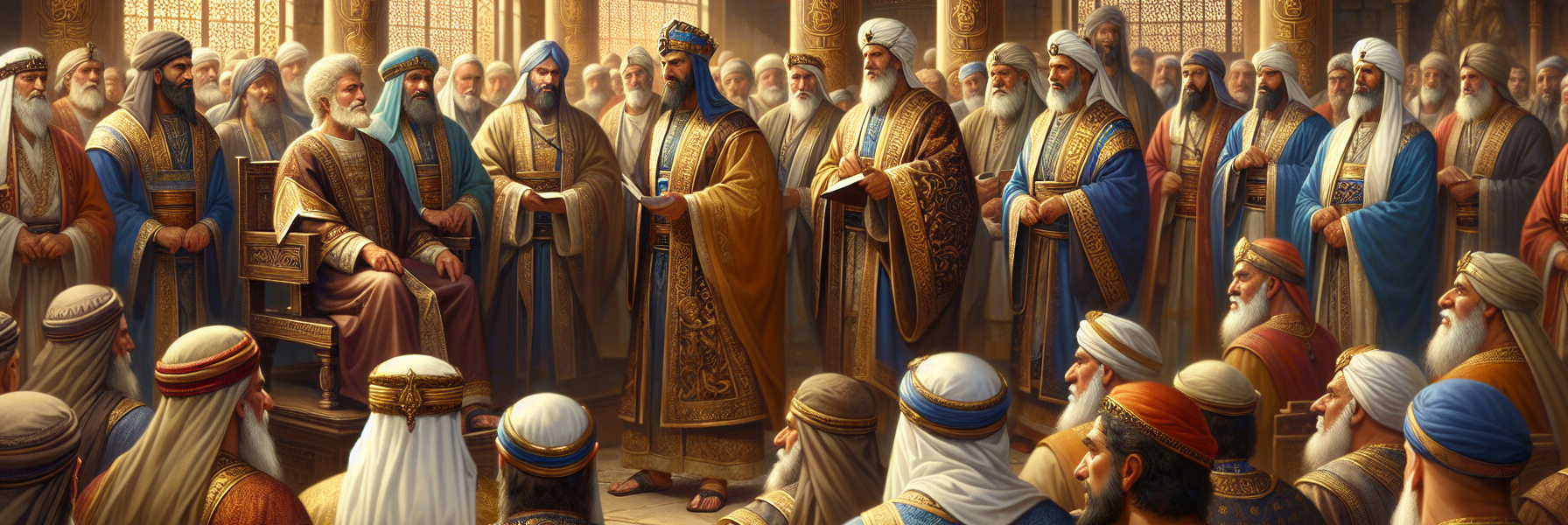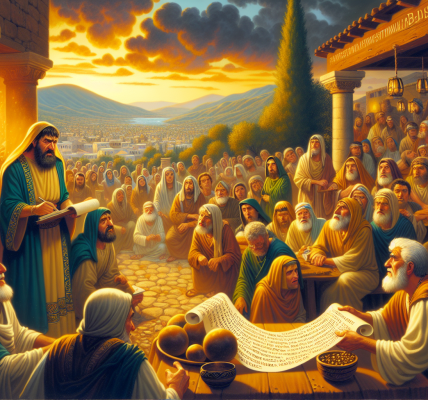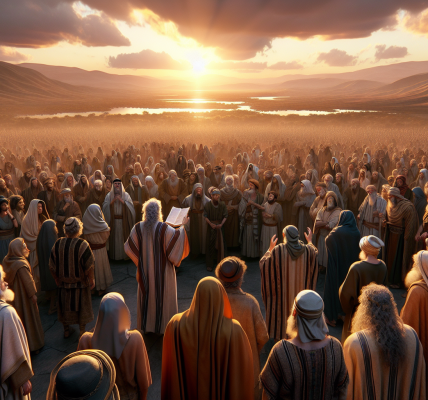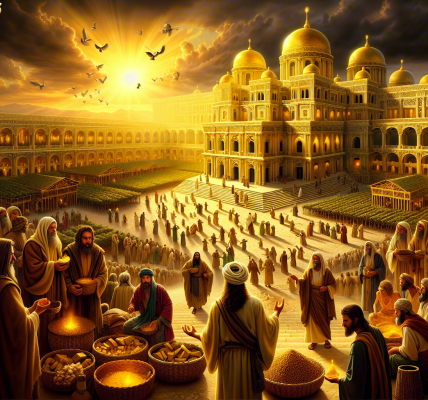**The Humiliation of the Ambassadors and the War That Followed**
In the days when King David ruled over Israel with wisdom and strength, he sought to show kindness to the nations around him, remembering the covenant bonds that had once existed. One day, news reached him that Nahash, the king of the Ammonites, had died. Though Nahash had been a harsh ruler, he had once shown kindness to David during his years of exile, and so David resolved to repay that loyalty.
“Surely,” David said to his counselors, “Hanun, the son of Nahash, will remember his father’s friendship with me. I will send messengers to comfort him in his grief.”
So David chose his most trusted ambassadors, men of dignity and honor, and sent them to the Ammonite capital of Rabbah. They were to express David’s condolences and reaffirm the bond between their peoples. The men set out, clad in fine robes, bearing gifts of spices, silver, and oil—a gesture of peace and goodwill.
But when they arrived, suspicion festered in the heart of Hanun. His advisors, men of cunning and distrust, whispered in his ear:
“Do you truly think David has sent these men to honor your father? No! They are spies, sent to search out the city, to learn its weaknesses so they may overthrow you!”
Hanun’s heart hardened. Instead of receiving the ambassadors with the dignity befitting their station, he seized them in a cruel and humiliating spectacle. He ordered his servants to shave off half of each man’s beard, a grievous insult to the Israelites, for whom the beard was a mark of manhood and dignity. Then, in further mockery, he cut off their garments at the hips, exposing them to shame before all the city.
The ambassadors, humiliated and trembling with indignation, could not return to Jerusalem in such a state. Instead, they fled to the nearby town of Jericho, where they remained until their beards had regrown, their hearts burning with the injustice done to them.
When word reached David of this outrage, his anger was kindled, yet he also grieved for his men. He sent messengers to meet them in Jericho, offering comfort and new garments. “Stay here until your beards have grown,” he commanded, “and then return to me in honor.”
But the insult would not go unanswered. Hanun, realizing the gravity of his offense, sought allies for the coming storm. He hired vast numbers of Aramean mercenaries from Beth-Rehob, Zobah, and Maacah, paying them a thousand talents of silver to stand with him against Israel. Soon, a great army gathered—foot soldiers, chariots, and horsemen—arrayed for war at the gates of Medeba.
David, hearing of the gathering storm, summoned his mighty men and placed Joab, his hardened commander, at the head of the army. Joab, ever the strategist, surveyed the battlefield and saw that the Ammonites had positioned themselves before the city gates, while the Arameans stood in the open field.
Realizing the danger of being caught between two forces, Joab divided his army. He chose the finest warriors, placing them under the command of his brother Abishai, and said, “If the Arameans prove too strong for me, you must come to my aid. But if the Ammonites overpower you, I will reinforce you.” Then, with a fierce resolve, he added, “Be strong, and let us fight bravely for our people and the cities of our God. May the Lord’s will be done!”
The battle erupted with the clash of swords and the cries of men. Joab led the charge against the Arameans, and the mercenaries, though skilled, could not withstand the ferocity of Israel’s warriors. Seeing their allies routed, the Ammonites lost heart and fled behind the safety of their walls.
But the Arameans were not yet finished. Their king, Hadadezer, sent for reinforcements from beyond the Euphrates, summoning even greater numbers under the command of Shobach. When David heard of this, he knew he must strike decisively. Gathering all Israel, he crossed the Jordan and met the Arameans at Helam.
The battle was fierce, the ground trembling beneath the charge of chariots and the stampede of men. But the Lord was with David, and the Arameans fell before Israel’s might. Shobach, their commander, was struck down, and his death sent panic through the ranks. The survivors fled, abandoning their weapons and their dead.
Seeing their mighty allies utterly defeated, the kings who had served Hadadezer now sought peace with Israel. They submitted to David, and the Arameans no longer dared to aid the Ammonites.
Yet the matter with Hanun was not finished. The following year, when kings traditionally went to war, Joab returned with the full might of Israel’s army. He laid siege to Rabbah, striking its defenses and weakening its people, while David remained in Jerusalem.
In time, the city would fall, and its crown would be placed upon David’s head. But for now, the lesson was clear: those who repaid kindness with treachery would face the judgment of the Lord, and no alliance of men could stand against the anointed king when God fought for him.
Thus, the word of the Lord was fulfilled: He humbles the proud but exalts the righteous in due time.




